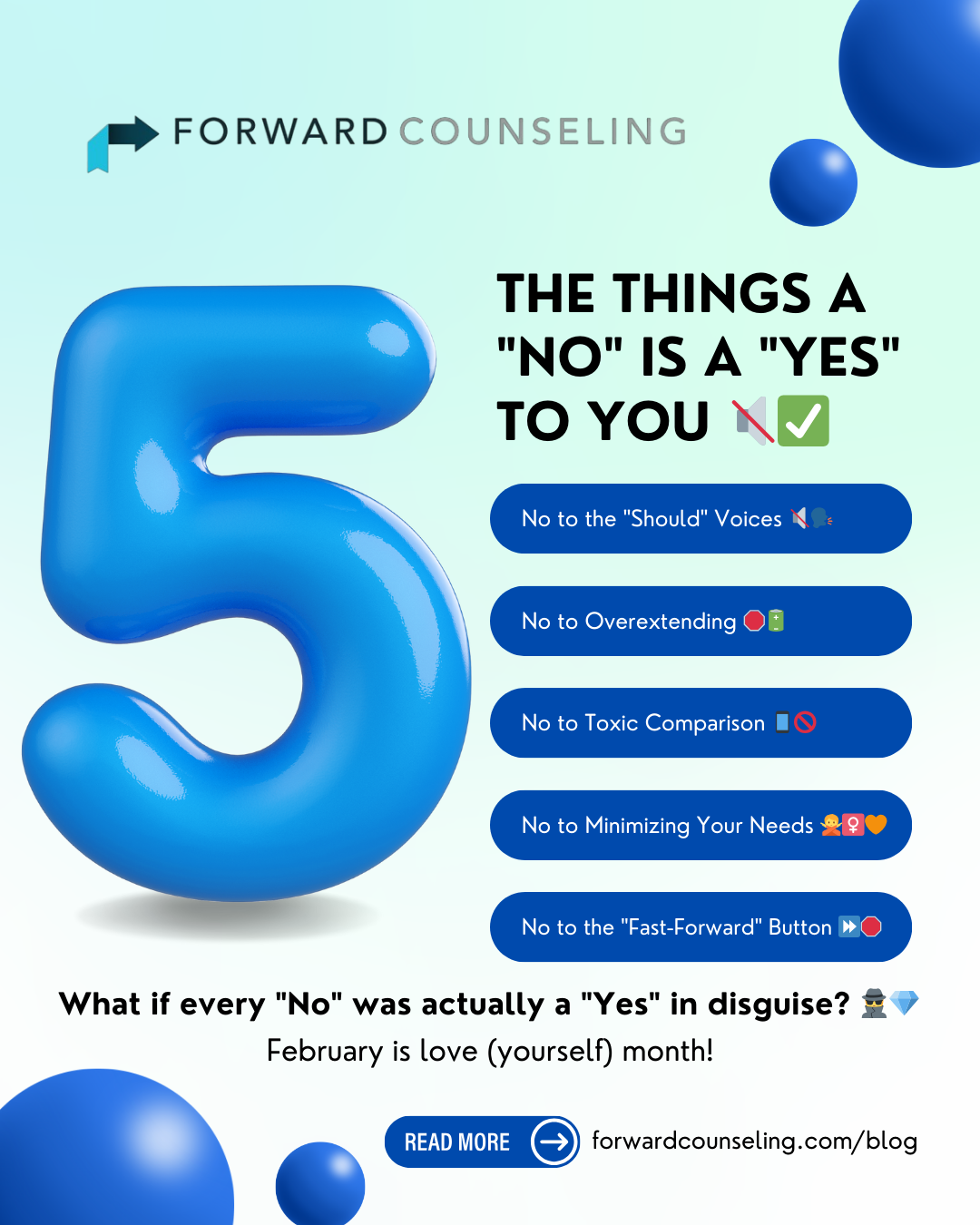Navigating Change: Understanding the Impact of Life Transitions
/Life is a continuous journey filled with twists and turns, and it's these transitions that make the ride so intriguing. But how do we navigate these shifts gracefully, and what impact do they have on our well-being and relationships?
Elizabeth “Liz” Luzader, LMSW of Forward Counseling, discusses that life transitions are transformative moments marked by change, involving emotions like sadness, anger, and excitement. Each individual faces unique challenges, and a supportive system like family, friends, and professional networks helps. Common fears and misconceptions about life transitions can hinder progress. However, self-care, mental well-being, and viewing change as growth opportunities can empower individuals to navigate these transitions with greater empowerment.
Let’s explore into Liz’s insights on life transition and help you embrace your journey to wellness.
1.What does "life transition" mean to you, and what are some examples of life transitions someone has experienced or anticipate experiencing?
Life transitions are experiences one goes through that involve a change or shift into another phase of life. Life transitions can be leaving or starting a career, ending or beginning of relationship(s), shifting into different belief systems, self-expansion and or growth, asserting boundaries for self, moving, aging, grief, becoming a parent, etc.
2. How do life transitions impact different areas of your life, such as relationships, work or career, personal identity, and overall well-being?
Life transitions cause one to learn to adjust to changes that are occurring. This can impact overall well-being physically, mentally, and emotionally.
3. What emotions and challenges arise when navigating life transitions? How do these experiences vary from person to person?
There is a grieving process involved with life transitioning. One could experience many emotions such as sadness, anger, excitement, joy, fear, overwhelm, guilt, shame, etc. Life transitions vary from person to person, and each will experience it in their own way depending on how one feels about change and uncertainty personally.
4. How does perception of change and transition influence ability to adapt and cope with the challenges that come with it?
It depends on how one’s views change and uncertainty. It is important to practice self-care and have a healthy support system while navigating life transitions.
5. What are some effective strategies to navigate life transitions successfully?
Prioritizing self-care and self-compassion, focusing on things you can control that provide structure such as creating a routine, emotion and nervous system regulation skills, and having a strong and healthy support system.
6. How do support systems, including family, friends, and professional networks, play a role in navigating life transitions?
Support systems play a crucial role during life transitions because they create safety and structure while going through change and uncertainty.
7. What are some common misconceptions or fears people have about life transitions, and how can we challenge or overcome them?
The common fear of life transitions is the fear of uncertainty, the unknown. The unknown can feel scary because we do not know what lies ahead. Having a support system and prioritizing self-care can help one feel more safe and secure while learning to navigate change.
8. How can self-care practices and a focus on mental well-being help individuals cope with and thrive during life transitions?
Prioritizing yourself and your needs helps build trust and safety from within; enhancing the relationship you have with yourself and can help you learn to adapt to change and going through uncertainty.
9. How can reframing change as an opportunity for growth and personal development positively impact one's experience of life transitions?
Reframing change as an opportunity for growth can help relieve some anxiety and one can learn to feel more confident while experiencing and adjusting to change which is inevitable.
10. What are some specific steps or actions individuals can take to navigate life transitions more effectively and with a greater sense of empowerment?
- Finding a therapist and/or support system is one important step to help navigate life transitions.
- Creating a mindfulness practice for nervous system regulation
- Prioritizing self-care and self-compassion practices
- Creating a routine that provides structure.
- Making time for play and exploration
Change is inevitable, and life transitions are chapters of our personal stories. They bring challenges, emotions, and fears, but also opportunities for growth and self-discovery. As we close the book on our exploration, remember that during life transitions, self-care, self-compassion, support systems, and a positive outlook can light the way forward. Embrace change as a chance to thrive, develop, and become a more empowered version of yourself. The next page of your journey is yours to write, filled with endless opportunities.
Liz Luzader, LMSW, is a therapist at Forward Counseling who focuses on self-healing through building healthy relationships with oneself. She uses holistic approaches to create safety and trust, focusing on the mind, body, and soul. Ferzacca works with adults struggling with life's difficult experiences like anxiety, depression, trauma, and life changes. She is trained in EMDR and Integrative parts work. She also uses a person-centered blended approach that incorporates CBT, mindfulness, attachment-based therapy, interpersonal skills, and somatic techniques. Her goal is to provide a safe and supportive space for clients to explore their own experiences and develop a life grounded in trust, safety, and habitual self-healing.







